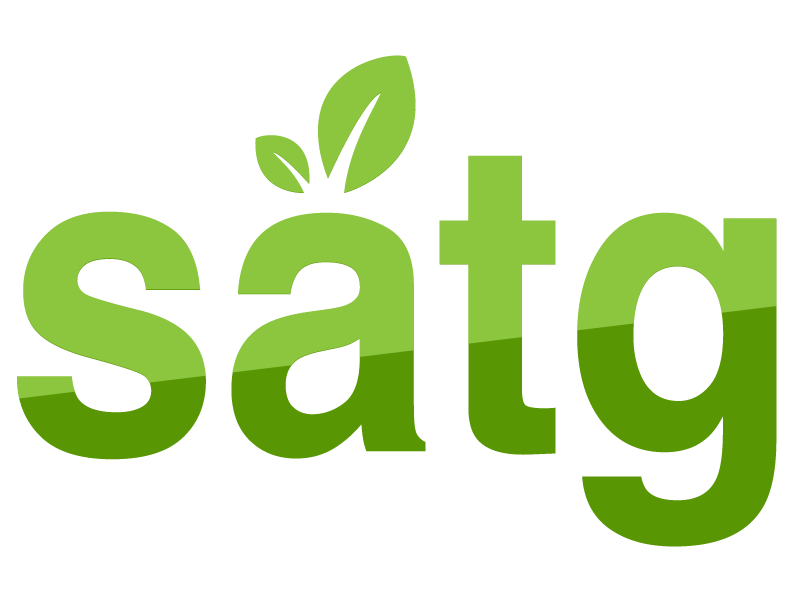2024 Job Opportunities
Education: A bachelor's degree in Agricultural Economics, Agribusiness, Economics, Business Administration, or a related field. Advanced positions might require a master's degree with a focus on value chain management or development.
Understanding of Value Chains: Strong comprehension of value chain concepts, including production, processing, distribution, and marketing of agricultural products.
Analytical Skills: Ability to analyze value chains, identify inefficiencies, and propose solutions for improving productivity, profitability, and sustainability.
Research and Data Analysis: Proficiency in conducting research related to value chain dynamics, market trends, and consumer behavior. Capability to analyze and interpret data to support value chain interventions.
Stakeholder Engagement: Experience in engaging with stakeholders across the value chain, including farmers, producers, processors, retailers, and policymakers.
Project Management: Basic understanding of project management principles to implement and monitor value chain projects, ensuring effective execution and delivery of objectives.
Communication Skills: Excellent communication abilities to interact with diverse stakeholders, present findings, and advocate for value chain improvements effectively.
Innovation and Problem-Solving: Capacity to innovate within value chains, introduce new technologies or practices, and solve challenges related to market access, quality standards, or logistics.
Adaptability and Cultural Sensitivity: Readiness to adapt to diverse cultural settings and local contexts within value chains, considering socio-economic factors and community dynamics.
Understanding of Sustainability: Awareness of sustainable practices within value chains, including environmental conservation, social inclusivity, and economic viability.
Regulatory Awareness: Knowledge of relevant regulations, policies, and standards affecting value chains, ensuring compliance and fostering ethical practices.
Job Features
| Job Category | Value chain Specialist |
Education: A bachelor’s degree in Agricultural Economics, Agribusiness, Economics, Business Administration, or a related field. Advanced positions might require a master’s degree with a fo...
Education: A minimum of a bachelor's degree in Plant Breeding, Genetics, Horticulture, Agriculture, or a related field. Advanced positions often require a master's or Ph.D. in Plant Breeding or Genetics.
Knowledge of Plant Biology and Genetics: Strong understanding of plant biology, genetics, and breeding techniques to develop new plant varieties with desired traits.
Breeding Techniques: Familiarity with various breeding methods such as hybridization, selection, molecular breeding, and biotechnological approaches.
Research Skills: Proficiency in conducting plant breeding research, experimental design, data collection, and analysis to improve crop traits like yield, disease resistance, and nutritional content.
Data Analysis and Interpretation: Ability to analyze complex datasets related to plant breeding trials and interpret results to guide breeding programs.
Field Experience: Practical experience in fieldwork, managing crops, conducting trials, and evaluating plant performance under different environmental conditions.
Understanding of Agricultural Systems: Knowledge of agricultural practices, cultivation techniques, and farming systems to develop plant varieties suitable for specific environments or farming methods.
Documentation and Reporting: Capability to maintain accurate records, document breeding processes, and prepare reports on research findings.
Collaboration and Communication Skills: Ability to collaborate with multidisciplinary teams, communicate research findings, and present technical information to stakeholders.
Innovative Thinking: Creativity and innovation in exploring new breeding strategies or technologies to enhance crop productivity, quality, and resilience.
Regulatory Awareness: Understanding of regulatory frameworks related to plant breeding, including intellectual property rights and compliance with relevant regulations.
Passion for Agriculture and Sustainability: A genuine interest in agriculture, a commitment to improving crop traits, and an understanding of the importance of sustainable and resilient crop varieties.
Job Features
| Job Category | Plant Breeders |
Education: A minimum of a bachelor’s degree in Plant Breeding, Genetics, Horticulture, Agriculture, or a related field. Advanced positions often require a master’s or Ph.D. in Plant Breedi...
Organizational Skills: Strong organizational abilities to oversee office operations, manage schedules, and ensure efficient workflow within the office.
Communication Skills: Excellent written and verbal communication skills to liaise with staff, clients, vendors, and upper management professionally and effectively.
Leadership Abilities: Basic leadership skills to supervise and coordinate office staff, delegate tasks, and foster a productive work environment.
Proficiency in Office Software: Competency in using office software such as Microsoft Office Suite (Word, Excel, PowerPoint, Outlook) or similar tools for documentation, scheduling, and data management.
Time Management: Ability to prioritize tasks, manage multiple projects, and meet deadlines effectively in a dynamic office environment.
Attention to Detail: Precision in administrative tasks, maintaining records, managing inventories, and ensuring accuracy in office documentation.
Budget Management: Basic understanding of budgeting principles, expense tracking, and cost-effective procurement of office supplies or services.
Teamwork and Collaboration: Ability to work well in a team, collaborate with colleagues, and coordinate with various departments to facilitate smooth office operations.
Professionalism and Confidentiality: Maintaining a professional demeanor, handling sensitive information with discretion, and adhering to confidentiality guidelines.
Job Features
| Job Category | Office Management |
Organizational Skills: Strong organizational abilities to oversee office operations, manage schedules, and ensure efficient workflow within the office. Communication Skills: Excellent written and verb...
Education: A bachelor's degree in fields such as International Development, Economics, Statistics, Social Sciences, or a related discipline is typically required. Advanced roles might require a master's degree with a focus on monitoring and evaluation.
Analytical Skills: Strong analytical abilities to collect, analyze, and interpret data related to program performance, impact assessment, and outcomes.
Research Skills: Proficiency in research methodologies, including both quantitative and qualitative methods, for data collection and analysis.
Job Features
| Job Category | Monitoring and Evaluation |
Education: A bachelor’s degree in fields such as International Development, Economics, Statistics, Social Sciences, or a related discipline is typically required. Advanced roles might require a ...
Organizational Skills: Strong organizational abilities to manage tasks, schedules, appointments, and office resources efficiently.
Communication Skills: Excellent written and verbal communication skills to interact with clients, colleagues, and external parties professionally and effectively.
Proficiency in Office Software: Competency in using office software such as Microsoft Office Suite (Word, Excel, PowerPoint, Outlook) or similar tools for documentation, scheduling, and data management.
Job Features
| Job Category | Office Administration |
Organizational Skills: Strong organizational abilities to manage tasks, schedules, appointments, and office resources efficiently. Communication Skills: Excellent written and verbal communication skil...

Education: A bachelor's degree in Accounting, Finance, Economics, or a related field is typically required. Some positions might require additional certifications like CPA (Certified Public Accountant) or CMA (Certified Management Accountant).
- Analytical Skills: Strong analytical abilities to examine financial data, identify trends, discrepancies, and assess the financial health of an organization.
- Attention to Detail: Precision in handling numerical data, maintaining accurate records, and ensuring compliance with accounting standards.
- Knowledge of Accounting Principles: Understanding of Generally Accepted Accounting Principles (GAAP) and relevant financial regulations. Familiarity with financial statements, tax codes, and auditing principles is essential.
- Proficiency in Accounting Software: Competency in using accounting software such as QuickBooks, SAP, or other enterprise-level financial management systems.
- Communication Skills: Effective communication skills to collaborate with team members, present financial information, and explain complex accounting concepts to stakeholders.
- Ethical Standards: Adherence to ethical standards and confidentiality in handling financial information.
- Problem-Solving Abilities: Capability to identify financial issues, analyze discrepancies, and propose corrective actions or solutions.
- Time Management: Ability to manage deadlines, handle multiple tasks, and prioritize work effectively, especially during financial reporting periods.
- Adaptability and Continuous Learning: Readiness to adapt to changes in accounting standards, technology, and regulations. A willingness to engage in ongoing professional development to enhance skills and knowledge in the field.
Job Features
| Job Category | Accountant |
Education: A bachelor’s degree in Accounting, Finance, Economics, or a related field is typically required. Some positions might require additional certifications like CPA (Certified Public Acco...
Education: A bachelor's degree in Agronomy, Crop Protection, Plant Science, Agricultural Science, Biology, or a related field is typically required. Advanced roles might require a master's or Ph.D. in relevant fields.
Job Features
| Job Category | Crop Protection |
Education: A bachelor’s degree in Agronomy, Crop Protection, Plant Science, Agricultural Science, Biology, or a related field is typically required. Advanced roles might require a master’s...
Agronomist Position
Education: A bachelor's degree in Agronomy, Crop Science, Agricultural Science, or a related field is typically required. Some positions may require a master's degree for advanced roles.
Job Features
| Job Category | Agronomists |
Agronomist Position Education: A bachelor’s degree in Agronomy, Crop Science, Agricultural Science, or a related field is typically required. Some positions may require a master’s degree f...

